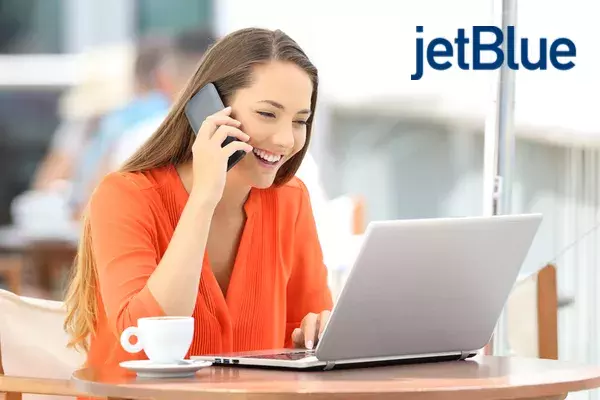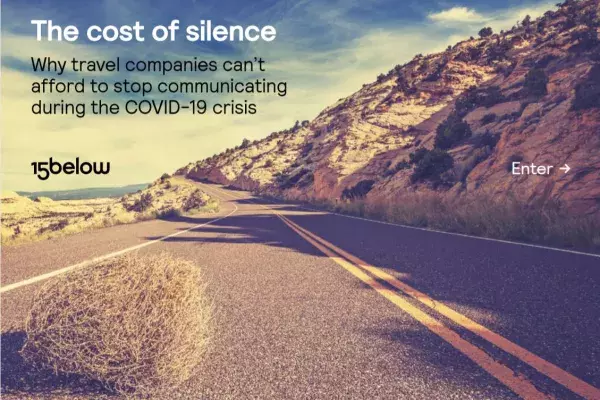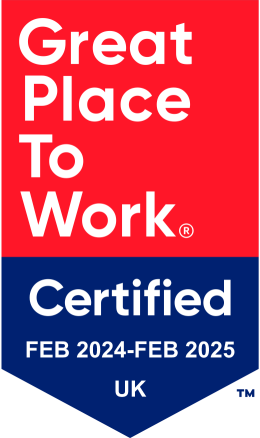16 September 2020 | News
Keeping it personal
16 September 2020 | News
Keeping it personal
Emma Kelly has written an article on the importance of personalisation in the low-fair airline sector for the August/September 2020 edition of LARA magazine which you can also read below.
Why is everything these days always about you? Well, put simply, it’s because you’re worth it. Emma Kelly explores the new normal of personalisation for the low-fare airline sector, with guidance from some of its leading proponents.
Personalisation – the action of designing or producing something to meet someone’s individual needs – has very much been a priority for many low-fare and regional airlines (LARAs) in recent years, with a number of them, in conjunction with their technology partners, being leaders in its application.
While the focus for many at the start was on retail and boosting revenues, personalisation is constantly evolving and is not, and should not, just be about selling goods and services. Personalisation is increasingly being applied to the whole passenger journey, from booking and pretravel to the actual flight and beyond, involving every touchpoint, good or bad, in between. LARAs, working with their technology partners, have realised that if they use the data they hold in the right way, they have the opportunity to deliver a truly personalised experience that is a powerful vehicle for establishing customer loyalty and boosting revenues.
Personalisation has taken on a whole new meaning and importance as the airline industry seeks to recover in the post-COVID-19 era. Personalisation of the offer, the product, the passenger journey and every aspect of an airline’s interaction with the customer is set to be more necessary than ever as airlines seek to regain passenger confidence, get people flying again, increase revenues including ancillaries and retain customer loyalty in the disruptive and unsettling times the airline industry finds itself in.
“Personalisation will, without a doubt, become even more important in a post-COVID-19 world,” says Nicholas Key, CEO of software development firm 15below. “It has always been key to engagement, but the travel experience is set to change dramatically, so communication will have to change as well,” he says.
15below knows a thing or two about communicating with airline passengers and personalisation. The UK-based company, which also has operations in Australia, was established in 2000 with the aim of driving improved efficiency and customer service across the travel industry. Best known for keeping airline passengers informed and empowered during acts of disruption, such as flight delays and cancellations, 15below works with airlines around the world, allowing them to stay connected with their passengers throughout their journey, from booking to arrival and beyond. 15below’s platform integrates directly with an airline’s reservation system and other internal and third-party data sources, allowing an airline to stay connected with passengers on any device and any channel. LARAs account for 47% of the company’s business, with LCC clients – which number more than 20 – including Ryanair, JetBlue, Scoot, VivaAerobus, Spirit, Jetstar, Norwegian Air International and Wizz Air.
Communicating with passengers in a personalised way is set to take on a new importance post-pandemic and will be key to regaining passenger confidence and recovery for the industry, 15below believes.
Previously, airlines used personalised pre-trip notifications to sell ancillary products, but this will not be the new norm, says Key. “Passengers now have to think about health testing, declaration forms, visas, new protocols and mandates, quarantine, track and trace information, PPE and a whole plethora of other things,” he says. “While it is not technically the airline’s responsibility to ensure their passengers have thought of all these things, the passenger will definitely blame them if they get to the airport before being told they’re unable to fly. Equally, airlines are fined if they transport passengers without the correct documentation, so it is in their best interests to ensure their customers are travel-ready before they leave home,” he explains.
The human touch
15below is recommending that airlines are proactive and tell their passengers what they need to know before they fly, with personalisation being key due to the different requirements and protocols in place around the world. “By linking up with different data sources – of which airlines have many at their disposal – they can tell each passenger their exact requirements based on their nationality, country of departure and arrival and airport. This level of personalisation will save a lot of time, stress and risk for everyone involved,” he says.
15below believes that airlines should use abandoned cart technology and personalised marketing to reassure passengers before they fly; communicate regulatory information to passengers in a personalised way; use self-serve technology to get information from the passenger to the airline seamlessly, and provide vital communication to prepare passengers for changes at the airport and onboard.
Airlines should be focusing on empathy in such times, integrating empathy into automated processes, 15below believes. “Giving the human touch without manual intervention is always the ultimate goal, but even more so now when stress levels are at their highest and massive unexpected volumes of communication are the norm,” says Key.
Even before COVID-19, many low-cost carriers were becoming increasingly sophisticated when it comes to personalisation and realising the benefits. “The LCCs that we work with are very sophisticated in the way they manage personalisation. In fact, some of them – JetBlue for example – are incredibly forward-thinking and recognise that investing in passenger communications keeps their costs down as they don’t need big contact centres that many airlines rely on when they don’t offer their customers proactive, relevant information,” says Key.
In terms of personalisation and airline retail, the industry is moving into its next evolutionary stage and entering an era of “Complete Retailing”, according to a white paper published by Atmosphere Research for Enterprise Ireland, the trade and development agency of the Irish Government – with Ireland being home to a flourishing travel technology sector, including personalisation specialist Boxever.
In its report, ‘Maximising revenue across the traveller’s journey’, Atmosphere describes Complete Retailing as: “The ability for a travel seller to dynamically create, price, publish and sell relevant, personalised, appealing offers, whether as a proactive ‘push’ or a response to a traveller’s request and manage the order’s creation, purchase, payment and fulfilment across any channel and platform.”
Airlines should now be able to “elevate their customer and user experiences with the most useful back- and front-end technologies that allow travellers to find the products they want and the value they demand,” says the paper. Airlines have the ability to deliver complete retailing due to their access to more extensive customer, commercial and operational data and advancements in transformational technologies such as the cloud, data, artificial intelligence (AI), machine learning, Internet of Things and blockchain making it possible.
Offer personalisation is at the core of the user experience in Complete Retailing, says Atmosphere. “Complete Retailing in travel hinges on a travel seller’s ability to extend appealing, relevant, personalised offers to the traveller at the right time, with the right price, through the channel that has the best chance of capturing the customer’s attention.”
Boxever and Norwegian
Boxever has been a pioneer in the use of data and AI, working with numerous low fare and regional airlines around the world on widescale personalisation campaigns using its AI-driven personalisation platform. Airline clients have included airBaltic, Cebu Pacific, Hong Kong Express, Jetstar, Ryanair, VivaAerobus, Viva Air and Volaris. Last year it started working with Ryanair across the carrier’s platforms as part of the LCC’s customer care improvements to personalise each customer interaction.
Most recently, Boxever has been working with Norwegian Air Shuttle, having won a five-year contract with the carrier at the end of last year to provide solutions to form the backbone of the airline’s long-term personalisation strategy. Norwegian has laid out an extensive roadmap and a dedicated team designed to deliver a more relevant, personalised customer experience across all its customer interactions with the aim of improving customer satisfaction and increasing revenue.
Boxever says its personalisation platform will be the brain behind the airline’s customer-facing channels, ensuring that individual marketing to customers is as relevant as it can be, increasing engagement and revenue from each customer interaction. Working with Boxever, Norwegian is using the wealth of data it holds to deliver a more customer-centric experience across the entire experience, from prospecting to customer care and retention. “The more we delved into data-driven communications, the greater the potential proved to be,” says Kei Grieg Toyomasu, Senior Vice-President of Marketing at Norwegian.
Personalisation is vital for airlines and they should be making better use of the data they hold, Boxever believes. “Personalisation can improve both conversion rates and average order value. Smart, effective personalisation is really about how an airline can present the best options to each customer when they are ready to buy,” Boxever CEO David O’Flanagan says in the Atmosphere Research paper. “Good personalisation allows an airline to make the customer journey from shopping to purchase to flight as good as it can be. The key to this is rich, good, actionable data,” he says. O’Flanagan believes that personalisation has a role to play “almost everywhere in the customer journey”, with the intelligent use of data capable of transforming customer service into “a truly personalised experience”.
Machine learning is at the heart of global technology provider Sabre’s Commercial Platform, which it describes as an end-to-end personalised retailing platform. Sabre says its technology allows airlines to take retailing to the next level and “help our airline partners deliver the personalised experience that customers are coming to expect”, says Cem Tanyel, President of Sabre Airline Solutions. The Sabre Commercial Platform includes the Smart Shop which uses a machine-learning framework to deliver personalised product offers to increase conversion and loyalty.
JetBlue is one LARA using the Sabre Commercial Platform, allowing the airline to “further innovate the customer experience”.
Sabre points our way
Sabre is moving further into the LARA sector following its acquisition late last year of airline retailing software provider Radixx which has an established market presence with low-fare airlines. Sabre says the acquisition will help it offer retailing, distribution, and fulfilment capabilities to serve the LARA market.
Even without machine learning, airlines still have enough data to create a personalised experience, 15below’s Key believes, even suggesting that in some areas the increasing use of machine learning by airlines in the quest for personalisation could be overcomplicating the issue. “Between the booking itself and other sources we use, such as loyalty programmes and CRM systems, there is more than enough data to provide a truly personalised experience,” he says. For example, from the PNR [Passenger Name Record] alone the airline knows whether a booking includes a small child, how much disruption they are facing, what impact that will have and how they would like to be helped. “This doesn’t need artificial intelligence to realise in most cases,” he says.
Airline passengers are seeking a more personalised approach now more than ever. Can an airline go too far? Not according to Key: “It’s difficult to see how an airline could take personalisation too far. Of course, data privacy needs to be considered, but airlines have so much information at their disposal – primarily within the PNR – that they can use to offer hyper-personalisation already.”
He points, for example, to the 15below platform’s ability to use advanced algorithms to determine the best timing, content, and channel for each passenger. He explains: “For example, only sending messages during ‘friendly’ hours if it’s not urgent or converting journey times into local time. They’re little details that many airlines might not consider as ‘personalisation’, but they are in fact the details that delight the passenger and really make the difference to the overall customer experience.”




